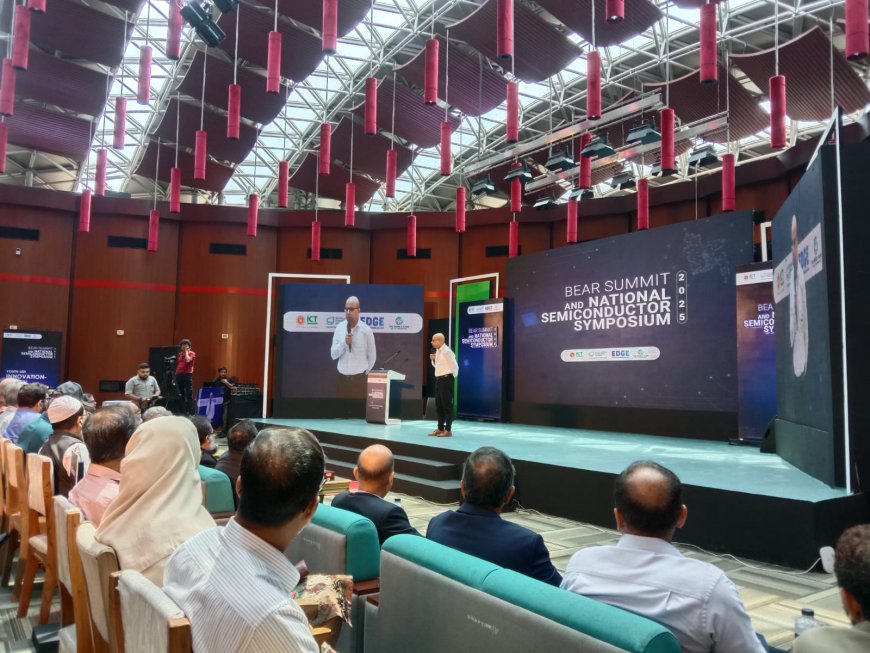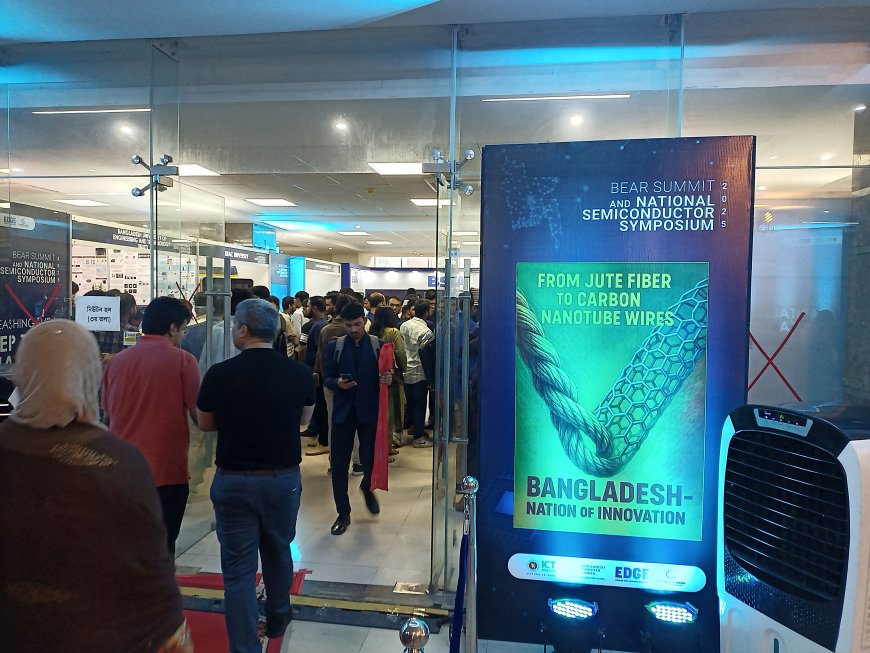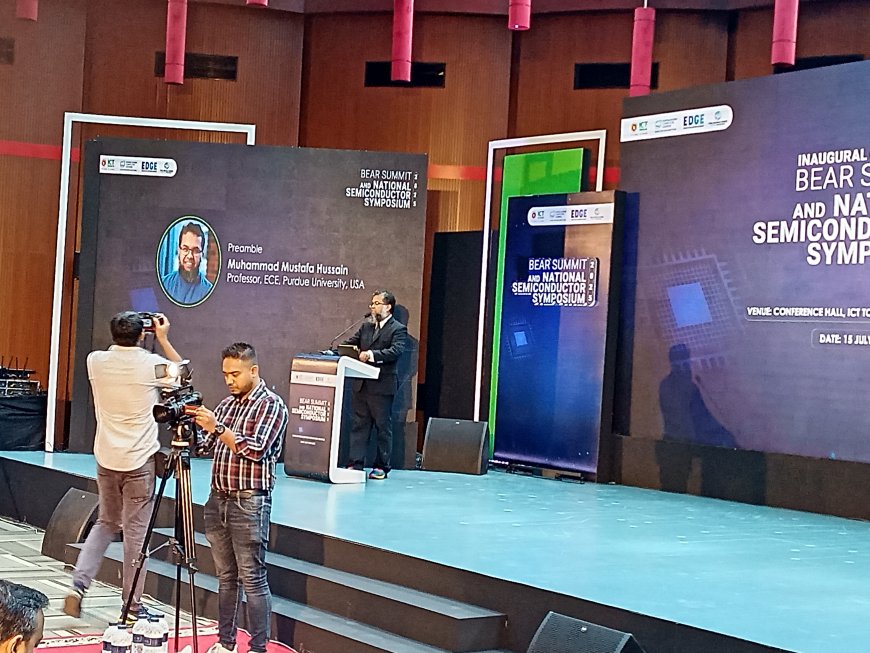BEAR Summit and National Semiconductor Symposium 2025 Begins

Robots capable of operating on land, water, and even Mars, technologies for aquaculture, special mosquito traps, hyacinth collection from drains, AI-powered shoe design from footprint screening, IoT solutions for cattle farming, and Bengali-speaking conversational AI—such semiconductor-driven solutions are now on display as the two-day BEAR (Biotechnology, Electronics, Artificial Intelligence, and Robotics) Summit and National Semiconductor Symposium kicks off in Agargaon, Dhaka.
Held on the second floor of the National Science and Technology Complex, the event aims to foster an innovative generation in the fields of biotechnology, electronics, artificial intelligence (AI), robotics, and semiconductors.
The symposium brings together nine leading global experts from around the world, representatives of top local business conglomerates, vice chancellors of various universities, researchers, innovators, students, and political leaders.
Organized under the theme “Bangladesh as a Nation of Innovation,” the event is jointly presented by the ICT Division, EDGE Project, World Bank, and the Bangladesh Computer Council (BCC). It was formally inaugurated on the morning of July 16, Wednesday.
In the opening ceremony, Faiz Ahmad Taiyeb, Special Assistant on ICT and Telecommunications to the Chief Adviser, revealed plans for significant investments in the semiconductor sector. “The government aims to deliver all services—including passports, NIDs, and city corporation services—directly through a unified ‘Citizen Services’ portal,” he said.

Taiyeb further emphasized the need for data privacy and cloud policy. “The world is moving towards cloud-first strategies. To strengthen our national data infrastructure, BCC and the Bangladesh Data Center are working on developing five key components. We are also scaling up the capacities of our data centers and disaster recovery systems,” he added. “Private enterprises are being supported to boost native capabilities. With timely policy support, we believe we can firmly position ourselves even within a short term.”
“We need to build a skilled workforce to shape the future of employment. If done right, we can leverage the momentum of the Fourth Industrial Revolution,” said Taiyeb. He also noted that BEAR could significantly transform school-level education in technology.
“We are actively reforming the ICT sector,” Taiyeb continued. “Public services are being digitized—our goal is to bring front-desk operations like city corporation tasks, driver’s licenses, passports, and trade licenses to online platforms. We are also reforming legal frameworks to support these efforts.” He stressed the need to build a digital corpus of Bengali books in OCR text format to enable effective Bengali-language AI systems.
ICT Secretary Shish Haider Chowdhury stated, “Despite heavy investments in past regimes, the sector didn’t yield satisfactory outcomes. Under the new leadership, we are resetting everything.”

The event’s convener, Professor Mostafa Hossain of Purdue University, remarked, “This symposium aims to re-explore the potential of BEAR sectors, ensure active youth participation, and build strong industry-academia partnerships.” He noted that this initiative will pave the way for Bangladesh’s entrepreneurs and technologists to enter the trillion-dollar global semiconductor industry.
He added, “This summit is the product of collective strength—educators, entrepreneurs, and youth from home and abroad. It’s a showcase of the capabilities of our young generation and our commitment to proving it to the world.”
Professor Abu Borhan Mohammad Badruzzaman, Vice Chancellor of BUET, offered the vote of thanks at the ceremony. He noted, “Many of our top students are teaching and conducting research at leading global universities in the field of technology. With such talent, we cannot afford to lag behind. Bangladesh must move forward.”
World Bank Division Director for Bangladesh and Bhutan Jean Pesme, University Grants Commission Member Professor Dr. Md. Saidur Rahman, M A Jabbar. Bangladesh Semiconductor Industry Association President & Managing Director of Neural Semiconductor Limited; Mohammad Enayetur Rahman, CEO and President of Ulka Semiconductor, the country's leading semiconductor company; Tariq Adnan Moon, CEO of Alpinex, Advisor to the Acting Chairperson of the Bangladesh Nationalist Party (BNP); Ehsanul Mahbub Zubair, Assistant Secretary General of Bangladesh Jamaat-e-Islami; and Farhad Alam Bhuiyan Naeem, Joint Secretary of the National Citizen Party (NCP) and President of its ICT cell were also present at the inagural session among others.









































































































































































































